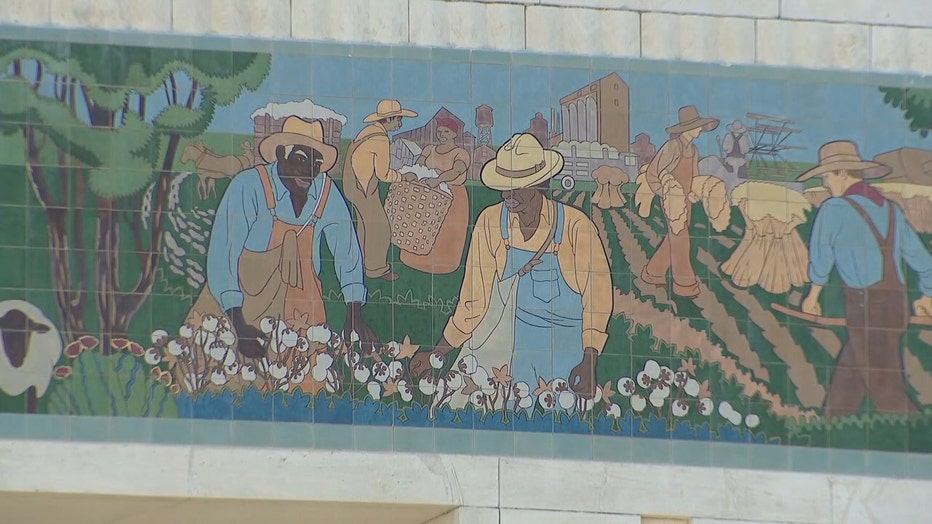Fort Worth Art Commission votes to leave Will Rogers mural intact, add historical context
FORT WORTH, Texas - The Fort Worth Art Commission decided the city should keep a historic mural on the Will Rogers Auditorium.
The mural was the recent subject of controversy because of its depiction of black people picking cotton.
Despite complaints, it was determined the mural should remain with historical context added.
The controversy started with a single tweet. After months of research and public input, the recommendation from the art commission is for the mural to stay put but add historical context.
The story behind this image depicting African American men picking cotton has been solved.
The art commission was tasked with examining the historical context of the scene, which is part of a ceramic tile mural displayed on the facade of the Will Rogers Memorial Center Auditorium, after a resident complained about it last year saying it depicted slavery.

With help from the Fort Worth Historic Preservation, the commission determined the mural created in 1936 actually depicted the “history of agricultural industry” in Fort Worth. The men were not slaves.
“That, in fact, the African Americans were sharecroppers and not slaves in part to do with the date of the mural and the clothes they were wearing,” explained Jennifer Casler Price with the Fort Worth Arts Commission. “They were wearing overalls, which identified them as sharecroppers.”
So after getting input from residents and the local chapter of the NAACP, the art commission voted unanimously Wednesday to leave the mural intact.
“We were not ones to want the mural removed,” said Estella Williams with the local NAACP branch. “You don’t erase history, but you learn from history.”
They’re recommending historical context be added to the mural. The final decision lies with the city council.
“We anticipate and hope that that council will agree with us,” said Estrus Tucker, vice chair of the Fort Worth Arts Commission. “And then we roll up our sleeves and look at ways to really better educate and inform everyone.”
It is too soon to tell when the city council will take up the item or in what form the historical context would be added. The NAACP wants to be part of the next step.

